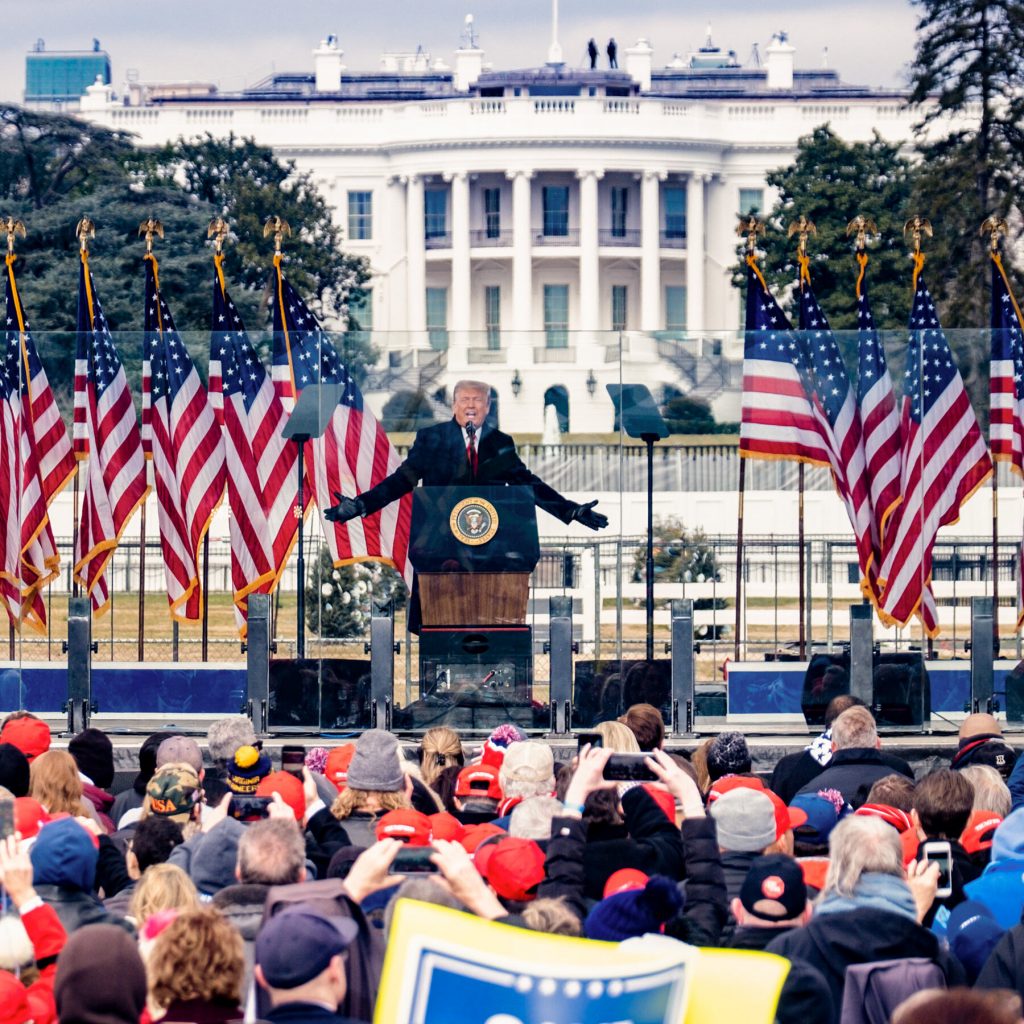26 October 2021
Donald Trump tried to overthrow the Constitution, but now wants to use the Constitution’s “executive privilege” concept to protect himself.

WASHINGTON — President Joe Biden has rejected another request from his predecessor Donald Trump to cover up Trump’s role in the Jan. 6 attack on the U.S. Capitol designed to keep him in power despite losing the 2020 election.
Biden had already rejected a request by Trump earlier this month to assert “executive privilege” over 47 documents that the House committee investigating the Capitol attack had requested from the National Archives. On Monday, White House general counsel Dana Remus wrote archives director David Ferriero that Biden had not changed his view in the intervening days regarding a second batch of documents.
“President Biden has determined that an assertion of executive privilege is not in the best interests of the United States,” Remus wrote. “Accordingly, President Biden does not uphold the former president’s assertion of privilege.”
She went on to quote from her Oct. 8 letter, pointing out that the Jan. 6 assault ― which Trump was impeached for inciting ― was “the most serious attack” on the government since the Civil War, and that “constitutional protections of privilege should not be used to shield, from Congress or the public, information that reflects a clear and apparent effort to subvert the Constitution itself.”
Trump’s office did not immediately respond to HuffPost’s requests for comment.
The letter from Remus does suggest, however, that there are some documents that the White House does not want to release.
“In the course of an accommodation process between Congress and the Executive Branch, the Select Committee has deferred its request for the following responsive records: Bates Numbers 000143-000179; 000398; 000879-000890,” she wrote.
The White House declined to detail what those three documents contain.
Committee spokesman Tim Mulvey said the panel has not agreed to forgo the records, just not to insist upon them immediately. “The select committee has not withdrawn its request for those records and will continue to engage with the executive branch to ensure we get access to all the information relevant to our probe,” he said.
Trump has already filed a federal lawsuit trying to block the release of his administration’s records, with oral arguments on his request for an injunction set for Nov. 4. Separately, the House voted last week to refer former Trump aide Stephen Bannon to the Department of Justice for criminal contempt of Congress for refusing to comply with a subpoena for his testimony and personal documents related to Jan. 6.
In January, Trump became the first president in 232 years of U.S. elections to refuse to turn over power peacefully to his successor.
He spent weeks attacking the legitimacy of the Nov. 3 contest he lost, starting his lies in the predawn hours of Nov. 4 that he had really won in a “landslide” and that his victory was being “stolen” from him. Those falsehoods continued through a long string of failed lawsuits challenging the election results in a handful of states.
Trump and some of his advisers even discussed using the United States military by invoking the Insurrection Act or declaring martial law to retain power despite having lost the election, including by seizing voting machines and ordering “re-votes” in states Biden narrowly won.
But military leaders had earlier made clear they would not involve themselves in the political process, so after the Electoral College finally voted on Dec. 14, making Biden’s win official, Trump instead turned to a last-ditch scheme to pressure his own vice president into canceling the ballots of millions of voters in several states Biden won and declaring Trump the winner during the pro-forma congressional certification of the election results on Jan. 6.
Trump asked his followers to come to Washington that day, and then told the tens of thousands who showed up to march on the Capitol to intimidate Vice President Mike Pence into doing what Trump wanted. “When you catch somebody in a fraud, you’re allowed to go by very different rules,” Trump said.
The mob of supporters Trump incited attempted to do his bidding by storming the building. They even chanted “Hang Mike Pence” after Pence refused to comply with Trump’s demands.
A police officer died after being assaulted during the insurrection, and four others took their own lives in the days and weeks that followed. One of the rioters was fatally shot as she climbed through a broken window into an anteroom containing still-evacuating House members, and three others in the crowd died during the melee.
While the House impeached Trump for inciting the attack, all but seven Senate Republicans, led by their leader, Kentucky’s Mitch McConnell, chose not to convict him — thereby letting Trump continue his political career even as faces several investigations into his post-election actions.
Trump and his allies are now engaged in a campaign to portray the rioter who was shot, Ashli Babbitt, as a martyr, and the hundreds of others who have been arrested as victims of political persecution. Trump himself continues to suggest he will run for the 2024 GOP nomination and is using his Save America committee’s money to continue spreading the same falsehoods that culminated in the violence of Jan. 6.
Huffington Post
